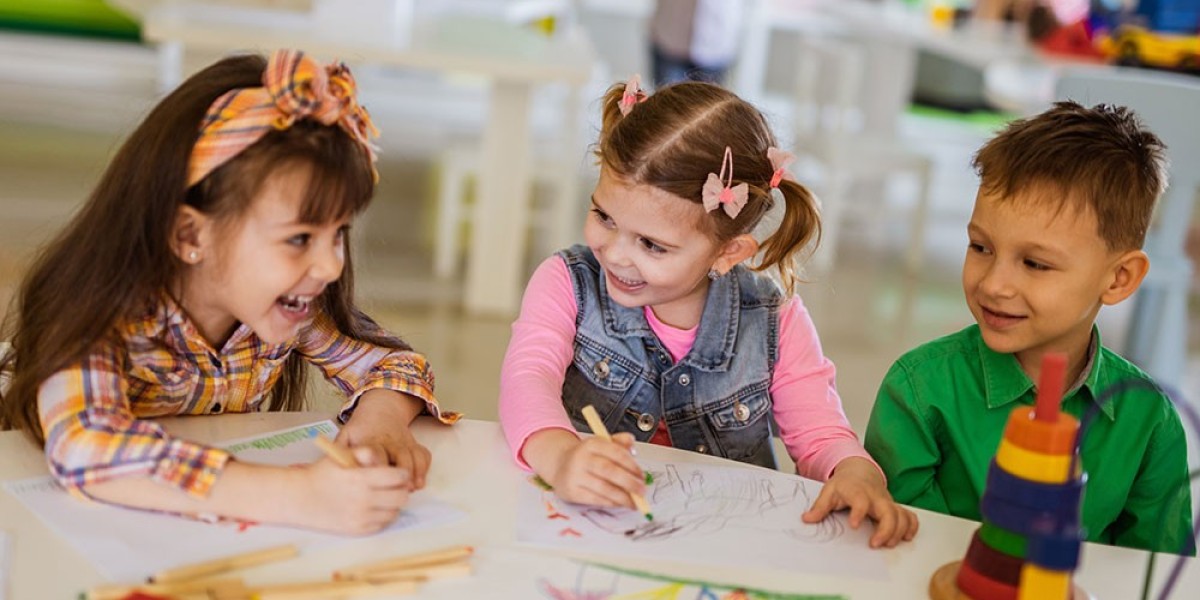Preschool, often viewed as a precursor to formal schooling, holds a vital place in a child's early years. Beyond its reputation as a place for play and basic learning, preschool plays a crucial role in shaping a child's development and setting the stage for a lifetime of success. Preschool education goes far beyond its surface-level reputation as a place of play. It's a pivotal phase that sets the tone for a child's lifelong journey of learning, growth, and achievement. Looking for the best best elementary schools in nj? Choose Ability School.
Through cognitive stimulation, social interactions, emotional development, and creative exploration, preschool imparts skills that empower children to succeed academically, socially, and personally throughout their lives. Investing in high-quality preschool education is an investment in a child's future, one that yields immeasurable returns in terms of intellectual curiosity, emotional intelligence, and the ability to thrive in an ever-changing world.
1. Cognitive Development: Laying the Cognitive Foundation
Preschool lays the groundwork for cognitive development by stimulating young minds with age-appropriate activities that encourage curiosity, critical thinking, and problem-solving. Through interactive games, puzzles, and creative projects, children develop their cognitive abilities, enhancing their capacity for learning and intellectual growth as they progress through their educational journey.
2. Social and Emotional Intelligence: Nurturing Social Skills
Social and emotional development is a cornerstone of preschool education. Young children learn to navigate social interactions, share, take turns, and express themselves effectively. This early exposure to teamwork, conflict resolution, and empathy fosters emotional intelligence that proves invaluable in building healthy relationships and adapting to various social contexts throughout life.
3. Communication Skills: Building Language Proficiency
Preschool is where language skills flourish. Children are exposed to a language-rich environment, expanding their vocabulary and communication abilities. Storytelling, group discussions, and imaginative play encourage language development, enabling children to articulate their thoughts, feelings, and ideas confidently.
4. Self-Confidence and Independence: Fostering a Strong Self-Identity
Preschool encourages children to explore their interests, make decisions, and take on responsibilities independently. As they accomplish tasks, solve problems, and interact with peers, they build a sense of self-confidence and a belief in their capabilities that extends beyond the preschool years.
5. Curiosity and Lifelong Learning: Nurturing a Love for Knowledge
Preschool sparks a child's natural curiosity and eagerness to learn. The emphasis on exploration, hands-on experiences, and inquiry-based learning cultivates a love for knowledge that persists throughout life. This foundation prepares children to approach learning with enthusiasm, making education a lifelong pursuit.
6. Adaptability and Resilience: Preparing for Life's Challenges
Preschool exposes children to diverse experiences, environments, and people, helping them adapt to new situations and challenges with resilience. Learning to cope with change and uncertainty early on equips children with crucial life skills to navigate the complexities of adulthood. Choose Ability School since it’s the best best pre schools in nj.
7. Motor Skills and Creativity: Enhancing Physical and Artistic Abilities
Through art projects, crafts, and physical activities, preschool promotes the development of fine and gross motor skills. Engaging in creative endeavors also nurtures artistic expression, fostering a well-rounded approach to learning that combines physical and creative growth.
8. Preparing for Formal Education: A Smooth Transition to Kindergarten
Preschool serves as a bridge between home and formal schooling. By familiarizing children with routines, basic academic concepts, and classroom dynamics, preschool paves the way for a seamless transition to kindergarten and beyond, reducing the stress often associated with starting school.
Key Takeaways
Cognitive Foundation: Preschool lays the groundwork for cognitive development, enhancing a child's capacity for learning and intellectual growth.
Social and Emotional Skills: Early education fosters social skills, empathy, conflict resolution, and emotional intelligence, which are crucial for building healthy relationships.
Language Proficiency: Preschool promotes language development through a language-rich environment, storytelling, discussions, and imaginative play.
Self-Confidence and Independence: Children gain self-confidence and independence as they explore their interests, make decisions, and take on responsibilities.
Curiosity and Lifelong Learning: Preschool sparks curiosity, instilling a lifelong love for learning and a positive attitude towards education.
Adaptability and Resilience: Exposure to diverse experiences in preschool helps children develop adaptability, resilience, and the ability to navigate life's challenges.
Motor Skills and Creativity: Preschool enhances fine and gross motor skills and encourages artistic expression through creative activities.
Smooth Transition to Kindergarten: Preschool prepares children for formal education, making the transition to kindergarten and beyond smoother and less stressful.
Investment in Future Success: High-quality preschool education is an investment in a child's future success, equipping them with skills to thrive academically, socially, and personally.
Preschool education provides a strong foundation for lifelong learning, personal development, and success in various aspects of life, making it a crucial stage in a child's educational journey.
 " class="wow_main_float_head_img">
" class="wow_main_float_head_img">






